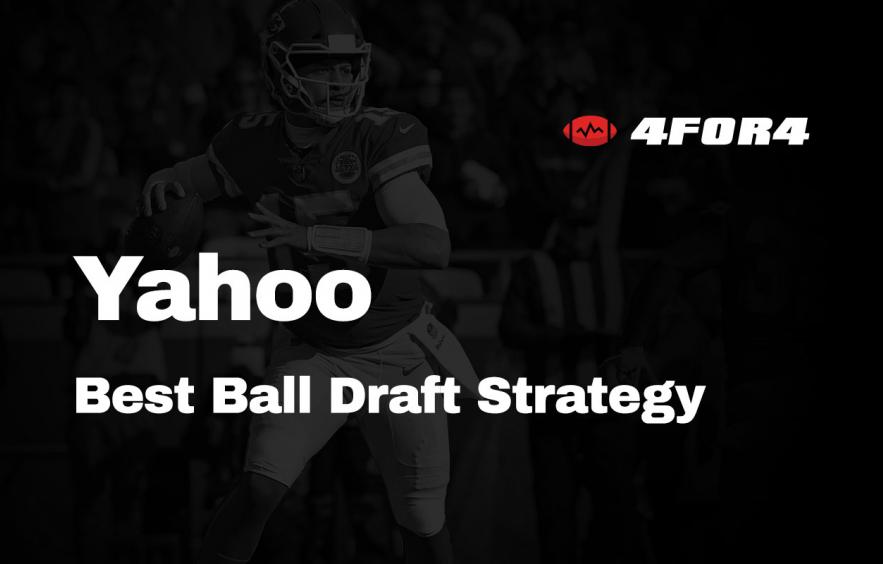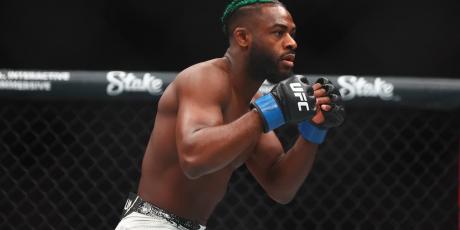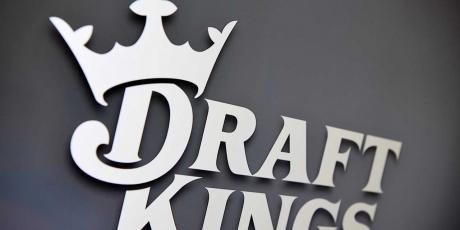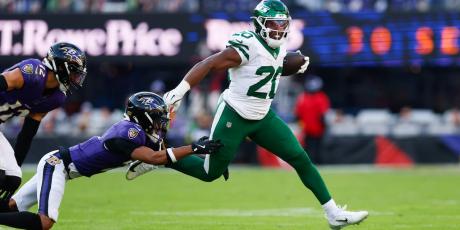Yahoo Best Ball League Draft Strategy Guide

Yahoo has recently launched their fantasy football best ball leagues, a format that requires no in-season management—no waiver wire, no trades, no setting lineups. Instead, your highest-scoring players are optimized to form your starting lineup. Leagues are decided by cumulative season points rather than head-to-head matchups.
Yahoo Best Ball League Settings
Yahoo best ball leagues are half-PPR, 17-man rosters that start: QB, RB, RB, WR, WR, WR, TE, Flex (RB/WR/TE). There are no kickers or team defenses. Buy-ins range from $1–$500 and the 10-person leagues offer prize pools up to $4,500.
One exciting wrinkle on Yahoo is that every weekly high scorer is awarded a prize, meaning that your season is never really over and your upside in any single league is tremendous.
Unlike other best ball platforms, Yahoo only offers fast drafts, with a 30-second draft timer. With only 10 people in each league and 18 rounds per draft, the time commitment for a draft is minimal. In many cases, drafting in a fast draft rather than a slow draft can be a huge advantage, especially early in the season. Those just getting started on their research will often be forced into bad picks because of the short clock, and novice best ball players will make even bigger mistakes when it comes to roster construction, one of the most important elements of being a successful best ball player.
Understanding Roster Construction in Yahoo Best Ball Leagues
Properly allocating the number of players to each position in best ball, a concept commonly referred to as roster construction, is arguably the top skill to master in this format. Executing this part of a best ball draft optimally directly impacts both the floor and ceiling of a roster and can sometimes take precedence over drafting specific players just because they are good values—this is especially true for fantasy managers that plan to play high volume in best ball.
Draft 2–3 Quarterbacks
Unlike traditional redraft leagues, where waiting until the end of the draft to pick a quarterback is a viable strategy, quarterbacks get a bump in value in best ball since every roster will have more than one player at the position. Because there is no in-season management, though, the pool of viable signal-callers is smaller than 32—players that don’t have a stranglehold on their team’s starting job are huge risks.
When deciding between two or three quarterbacks for your best ball teams, it’s often as simple as how much draft capital is spent on the first player—teams that opt for an early-round quarterback can typically wait and draft just one more solid starter, while those that miss out on a top seven or eight player at the position might strongly consider rostering a third passer.
Draft 4–6 Running Backs
With the high demand on top-tier running backs and the half-PPR scoring of Yahoo best ball leagues, new players might be inclined to load up on the position early and often. While there is no data that suggests grabbing a running back or two early is a bad thing, the often part can be problematic.
In this format, “protecting your investment” by continuing to draft heavily at running back after selecting two or more in the first few rounds is simply a losing strategy. Winning teams trust that either their stud running backs will pay off or they are willing to gamble on a handful of later-round picks. Trying to play both sides here puts too much stock in a fragile position and limits upside elsewhere.
Draft 7–9 Wide Receivers
One major problem with drafting too many running backs is that it limits the number of wide receivers that you can roster, a position that offers many more fantasy-relevant players. In any given week, a team usually has one running back that is expected to put up relevant fantasy numbers while almost any offense in the NFL can conceivably have three wideouts that might go off.
The receiver position provides the upside necessary to win best ball leagues since we don’t have to predict when the big weeks will happen. If running backs are flying off the board early in drafts, it’s relatively easy to scoop a ton of receiver value because of how deep the position is. When fantasy managers are able to pair pass-catchers with one or more of their quarterbacks, a strategy that should always be considered in best ball leagues, the team’s upside increases exponentially.
Draft 2–3 Tight Ends
The emergence of the dominant tight end has had a tremendous impact on who wins best ball leagues. Teams that have been lucky enough to land a Travis Kelce or Darren Waller in recent years have won leagues at an incredible rate. Intuitively, when a fantasy manager decides to pull the trigger on a tight end in the first few rounds, they should be more than willing to settle for just two players at the position.
Obviously, not every team can land a top-tier tight end but data has shown that it’s best to not panic when you miss out on a Kelce or George Kittle. Instead, best ball teams have historically fared better when waiting to grab three later-round tight ends than those that force a mid-round pick on the position. Of course, this is highly dependent on the number of potential breakout candidates at tight end but it also speaks to the opportunity cost of passing up players at the other positions in the middle rounds of drafts.
The Bottom Line
How many players you draft at each position in a Yahoo best ball league often comes down to how you manage your drafts in the early rounds. With that said, early-round strategy should influence whether a team falls on the high or low end of the restraints laid out in this article—going outside of those often results in roster builds that suffer too much to be competitive.
Yahoo players should be looking to stay in these ranges when drafting their best ball teams:
- Quarterbacks: 2–3
- Running Backs: 4–6
- Wide Receivers: 7–9
- Tight Ends: 2–3















